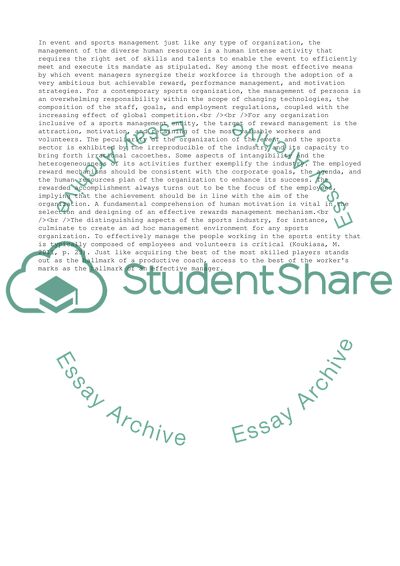Cite this document
(Manage People in Sports and Events Coursework Example | Topics and Well Written Essays - 2000 words, n.d.)
Manage People in Sports and Events Coursework Example | Topics and Well Written Essays - 2000 words. https://studentshare.org/management/1855541-manage-people-in-sports-and-events
Manage People in Sports and Events Coursework Example | Topics and Well Written Essays - 2000 words. https://studentshare.org/management/1855541-manage-people-in-sports-and-events
(Manage People in Sports and Events Coursework Example | Topics and Well Written Essays - 2000 Words)
Manage People in Sports and Events Coursework Example | Topics and Well Written Essays - 2000 Words. https://studentshare.org/management/1855541-manage-people-in-sports-and-events.
Manage People in Sports and Events Coursework Example | Topics and Well Written Essays - 2000 Words. https://studentshare.org/management/1855541-manage-people-in-sports-and-events.
“Manage People in Sports and Events Coursework Example | Topics and Well Written Essays - 2000 Words”. https://studentshare.org/management/1855541-manage-people-in-sports-and-events.


